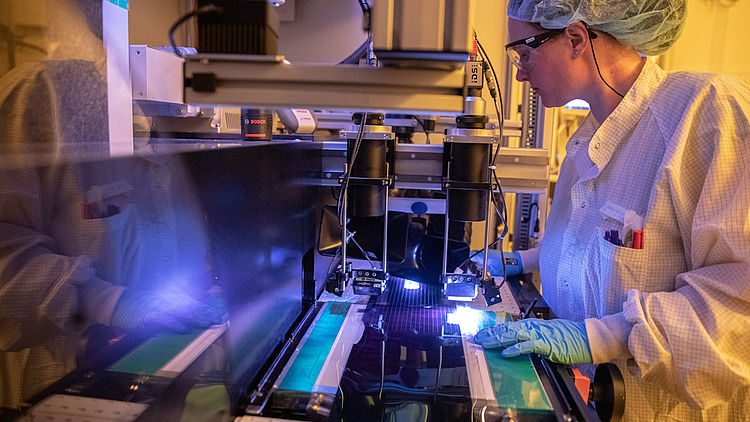Our mission is to go beyond the Detailed Balance limit (33.7%) and explore innovative material, device, and process strategies. Our goal is to approach the thermodynamic limit of 85% efficiency in solar energy conversion.
Through cutting-edge research and development, we are striving to pave the way for highly efficient and sustainable devices towards a brighter and greener future with solar energy.
Latest Publications:
Christoph Brabec Visits Institute for Clean Energy at City University Hong Kong
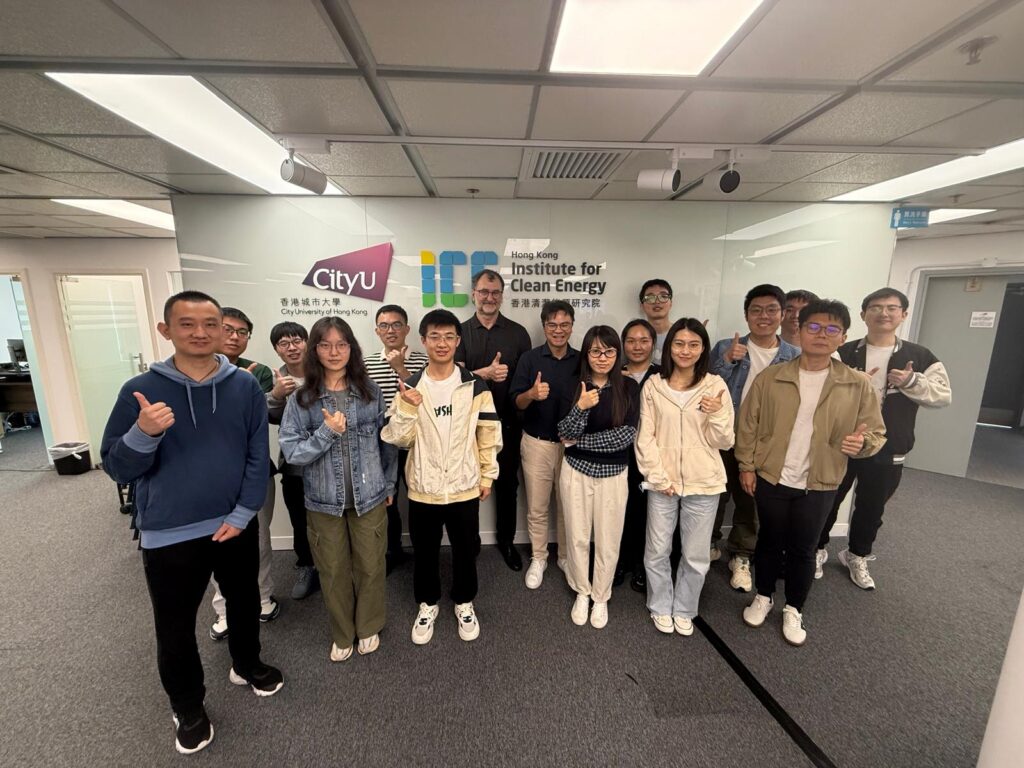
Inverse design workflow discovers hole-transport materials tailored for perovskite solar cells
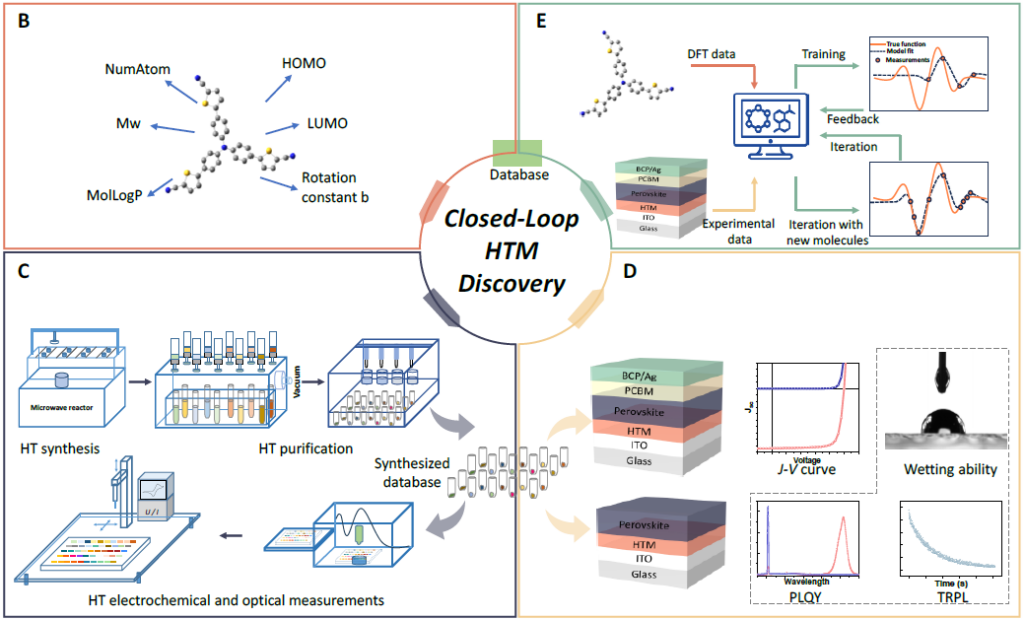
Elucidating the optimal material combinations of organic photovoltaics for maximum industrial viability
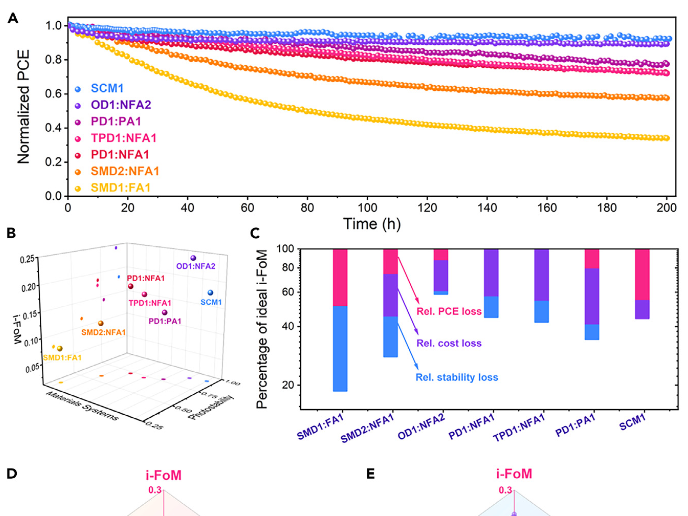
Perfluoroalkylsulfonyl ammonium for humidity- resistant printing high-performance phase-pure FAPbI3 perovskite solar cells and modules
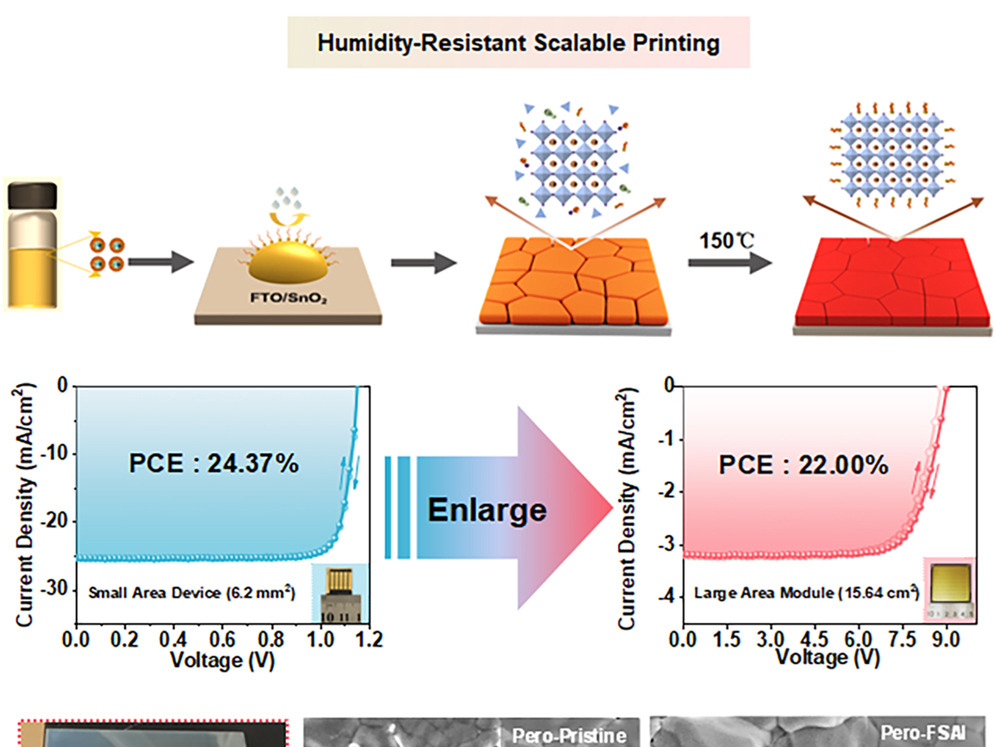
A polymer bilayer hole transporting layer architecture for high-efficiency and stable organic solar cells
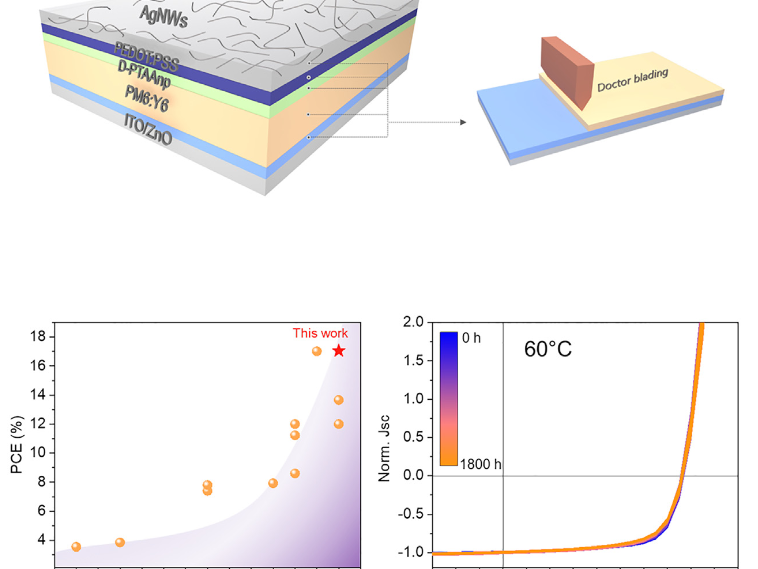
Photodegradation of Organic Solar Cells under Visible Light and the Crucial Influence of Its Spectral Composition
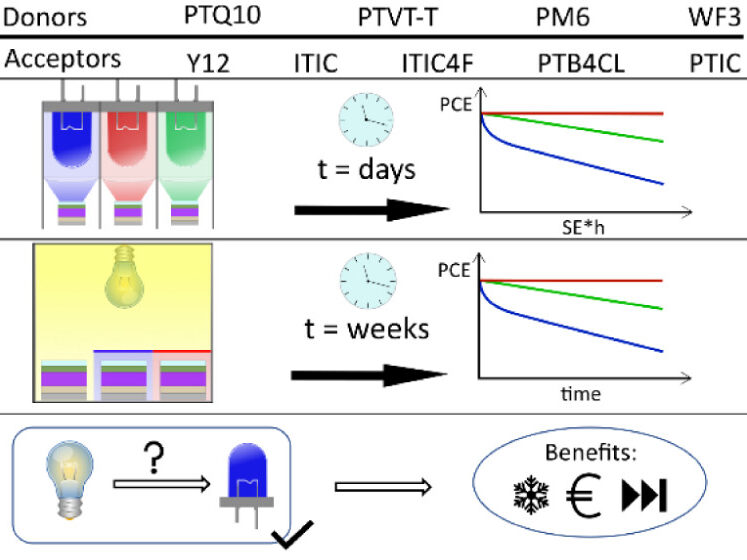
Controlling Interchromophore Coupling in Diamantane-Linked Pentacene Dimers To Create a “Binary” Pair
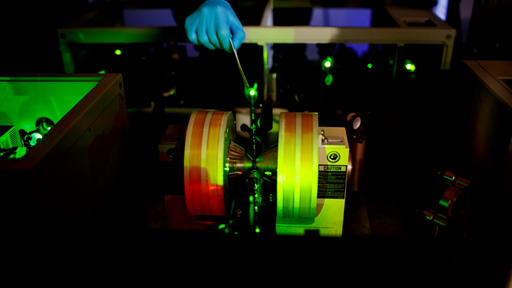
Suppression of phase segregation in wide-bandgap perovskites with thiocyanate ions for perovskite/organic tandems with 25.06% efficiency
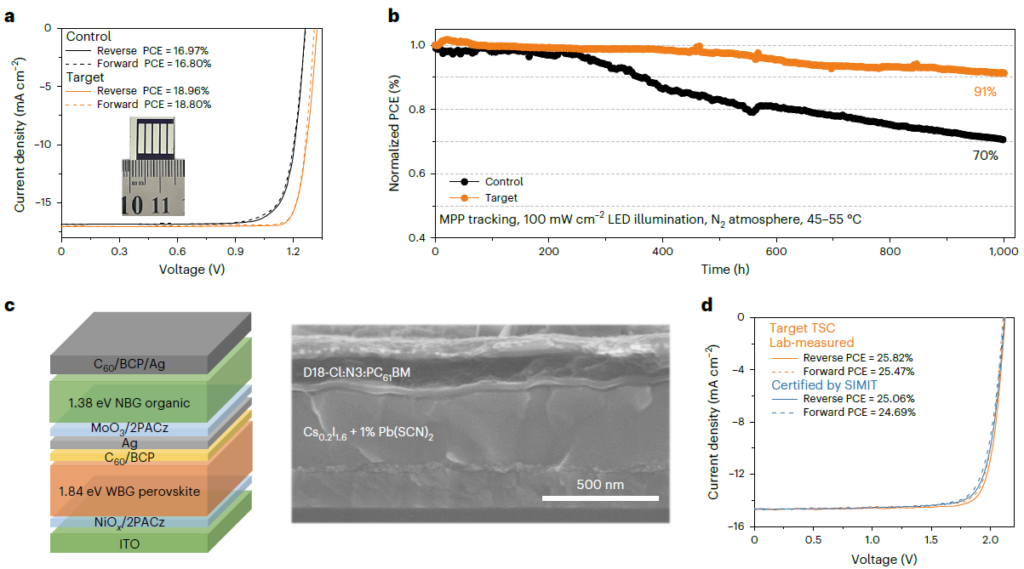
Large-area organic photovoltaic modules with 14.5% certified world record efficiency
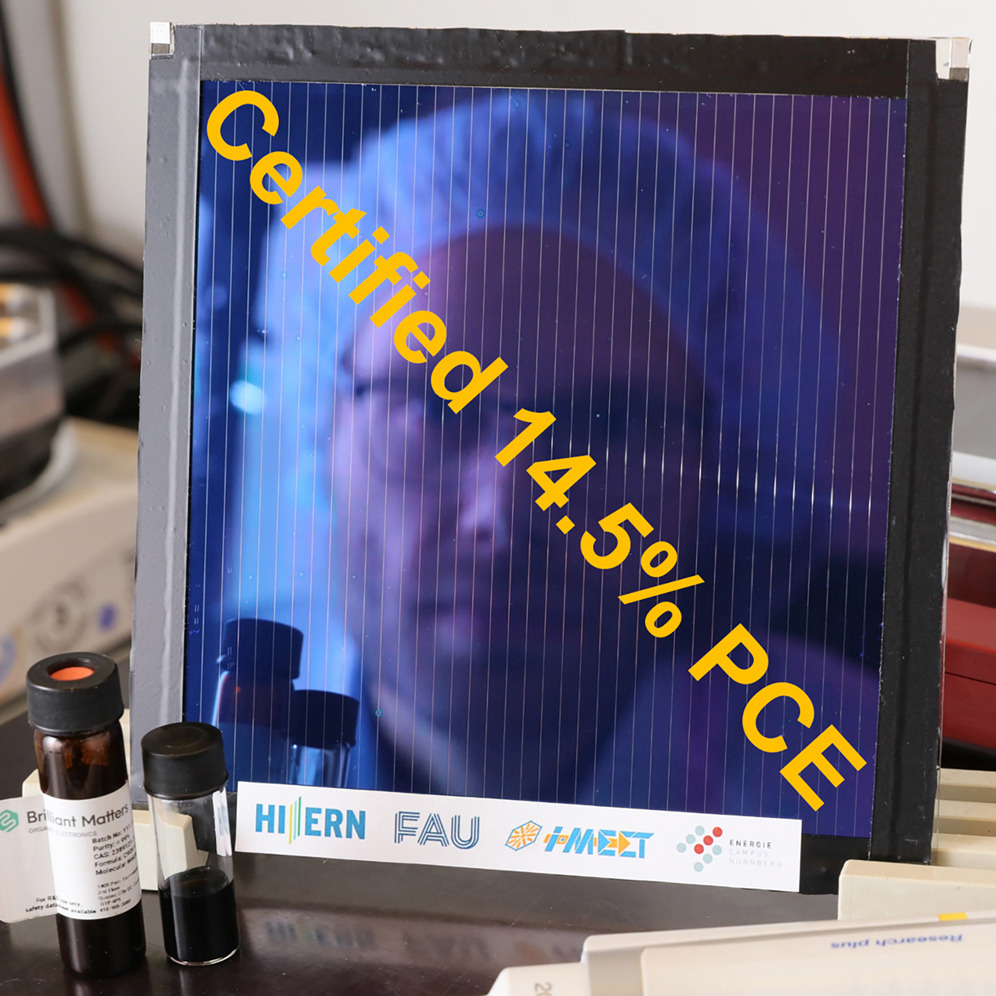
Polymer-acid-metal quasi-ohmic contact for stable perovskite solar cells beyond a 20,000-hour extrapolated lifetime

Ultrafast electronic relaxation pathways of the molecular photoswitch quadricyclane
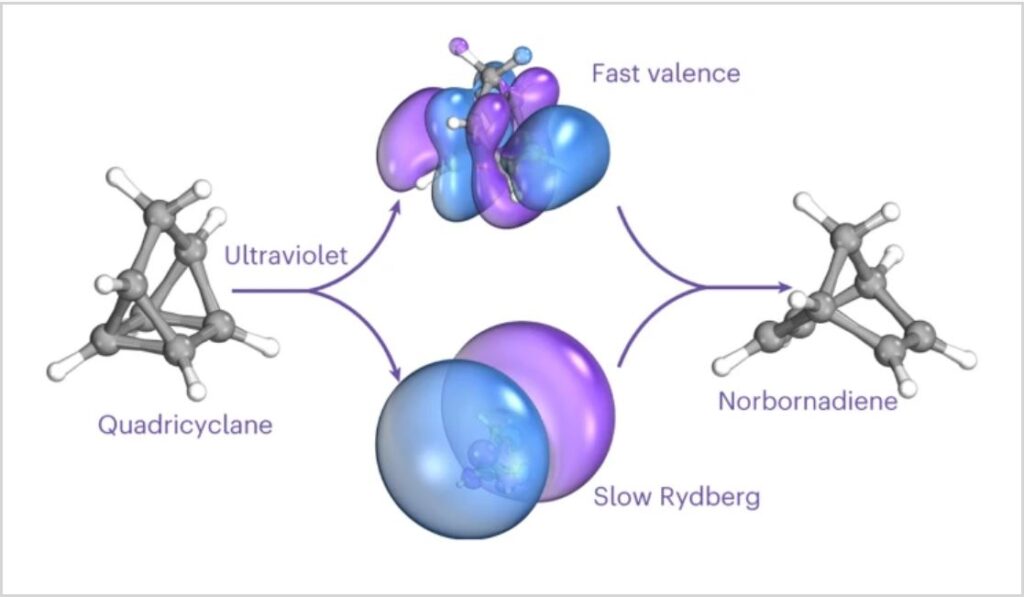
Bypassing the Single Junction Limit with Advanced Photovoltaic Architectures
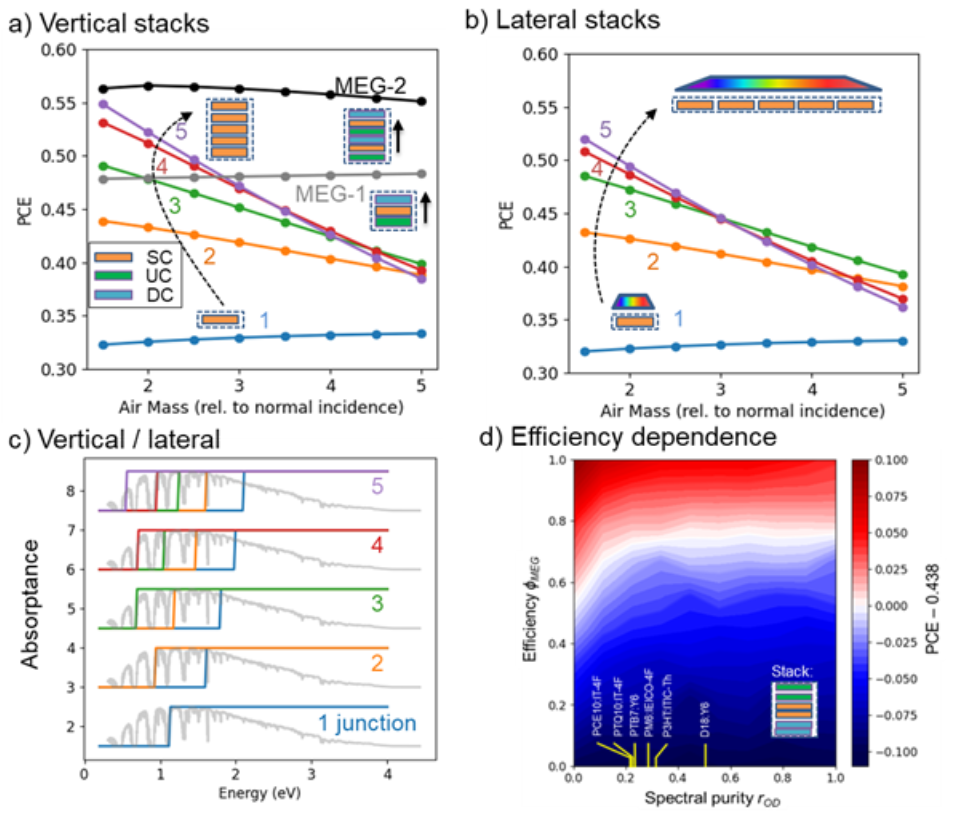
Cutting “lab-to-fab” short: high throughput optimization and process assessment in roll-to-roll slot die coating of printed photovoltaics
Intramolecular Triplet Diffusion Facilitates Triplet Dissociation in a Pentacene Hexamer
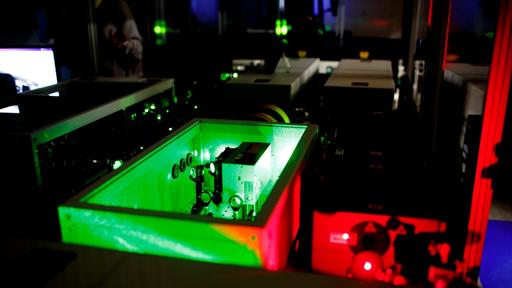
Optimizing Perovskite Thin-Film Parameter Spaces with Machine Learning-Guided Robotic Platform for High-Performance Perovskite Solar Cells
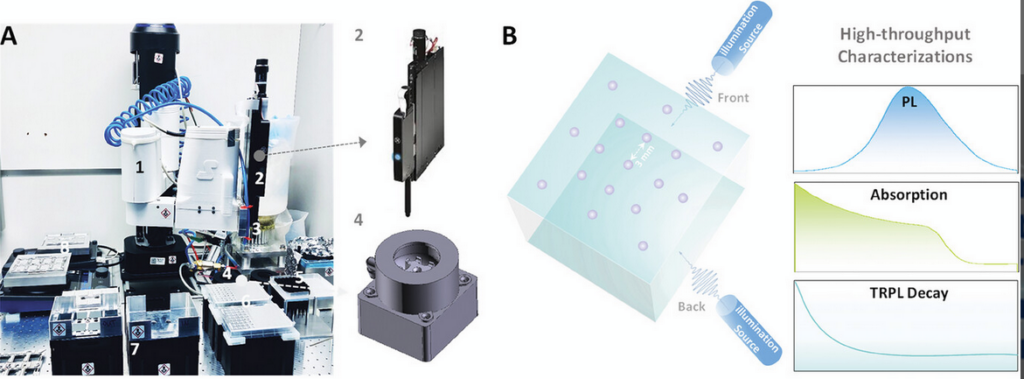
29.9%-efficient, commercially viable perovskite/CuInSe2 thin-film tandem solar cells

Homogenizing out-of-plane cation composition in perovskite solar cells

An insight into a combined effect of backsheet and EVA encapsulant on field degradation of PV modules

A Universal Strategy of Perovskite Ink – Substrate Interaction to Overcome the Poor Wettability of a Self-Assembled Monolayer for Reproducible Perovskite Solar Cells
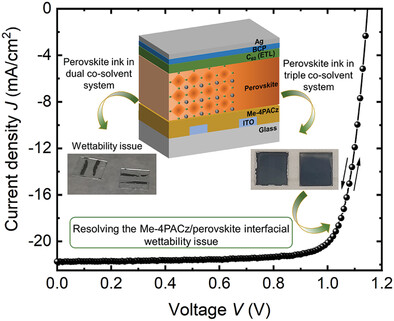
How Charge Carrier Exchange between Absorber and Contact Influences Time Constants in the Frequency Domain Response of Perovskite Solar Cells

Prof. Dr. Christoph J. Brabec
Department of Materials Science and Engineering
Chair of Materials for Electronics and Energy Technology
- Phone number: +49 9131 85-25426
- Email: christoph.brabec@fau.de
Prof. Dr. Julien Bachmann
Department of Chemistry and Pharmacy
Lehrstuhl für Chemistry of thin film materials (Prof. Dr. Bachmann)
- Phone number: +49 9131 85-70551
- Email: julien.bachmann@fau.de
Prof. Dr. Peter Hommelhoff
Institute of Condensed Matter Physics
Chair of Laser Physics
- Phone number: +49 9131 85-27090
- Email: peter.hommelhoff@fau.de
Prof. Dr. Silke Christiansen
Correlative Microscopy and Materials Data
Fraunhofer Institute for Ceramic Technologies and Systems IKTS
- Phone number: +4917632596689
- Email: silke.christiansen@ikts.fraunhofer.de
Prof. Dr.-Ing. Jörg Franke
Department of Mechanical Engineering
Institute for Factory Automation and Production Systems (FAPS, Prof. Franke)
- Phone number: +49 9131 85-27569
- Email: joerg.franke@faps.fau.de

